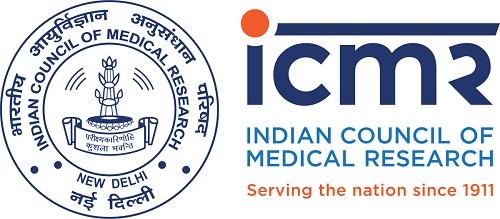
Indian Council of Medical Research [ICMR], the apex body at forefront of formulating COVID19 testing strategy in India has achieved a milestone of conducting 10 lakhs testing per day.
In last 24 hours, India has conducted 10, 23, 836 sample testing, which was achieved because
of ramped up COVID-19 specific diagnostic labs across India with active support of Central
and State/UT governments.
India has been conducting average 8, 89,935 testing in last 5 days. With record number of
testing per day, India has tested 3, 44, 91,073 samples across the country till 21st August
2020. Not only this, India has been testing around 74.7 people per lakh population, much
higher than WHO’s guidelines of testing 14 people per lakh population.
Record number of per day testing has been achieved by evaluating and validating
laboratories for COVID-19 testing across India. Starting with one single laboratory at the
National Institute of Virology (NIV) in Pune, Maharashtra, as on 21st August 2020 the total
number covid-19 specific testing laboratories count has reach 1511. Of which dedicated
government laboratories are 983 and private laboratories number stands at 528.
Dr. Balram Bhargava, Director General, ICMR said, “In a diverse country like India, for
equitable access to testing, optimization of resources based on the evolving epidemic was an
essential part of the sustainable scaling up. Due to the concerted, focused and collaborative
efforts of the Centre, State/UT government along with dedicated support of lakhs of front-line
workers we have ensured the successful implementation of TESTING aggressively, TRACKING
comprehensively & TREATING efficiently which has enabled us to rapidly increase the number
of tests done per day".
Ramping up of testing facility across India was at the core of increasing testing per day.
Through our ardent efforts, it was ensured that a specific testing platform are made available
addressing general testing (RT-PCR), High-throughput testing (COBAS), testing at remotest
places and PHCs (TrueNAT, CBNAAT),in containment areas (rapid antigen testing) and for
large number & migrant population testing (pooled sample testing).
ICMR has established COVID-19 testing labs even in the remotest parts of the country. These
include areas where it is difficult to travel. For example, ICMR has established COVID-19
testing lab at an altitude of 18 thousand feet in Leh. Ladhak. Apart from this, the scope of
testing has been expanded by setting up a lab at Port Blair, Andaman & Nicobar. The ultimate
goal is that testing should be available to everyone in need and no one should be left behind.
About ICMR
The Indian Council of Medical Research (ICMR), New Delhi, the apex body in India for the formulation, coordination and promotion of biomedical research, is one of the oldest medical research bodies in the world. The ICMR has always attempted to address itself to the growing demands of scientific advances in biomedical research on the one hand, and to the need of finding practical solutions to the health problems of the country, on the other. The ICMR has come a long way from the days when it was known as the IRFA, but the Council is conscious of the fact that it still has miles to go in pursuit of scientific achievements as well as health targets. The Council's research priorities coincide with the National health priorities such as control and management of communicable diseases, fertility control, maternal and child health, control of nutritional disorders, developing alternative strategies for health care delivery, containment within safety limits of environmental and occupational health problems; research on major non-communicable diseases like cancer, cardiovascular diseases, blindness, diabetes and other metabolic and haematological disorders; mental health research and drug research (including traditional remedies). All these efforts are undertaken with a view to reduce the total burden of disease and to promote health and well-being of the population